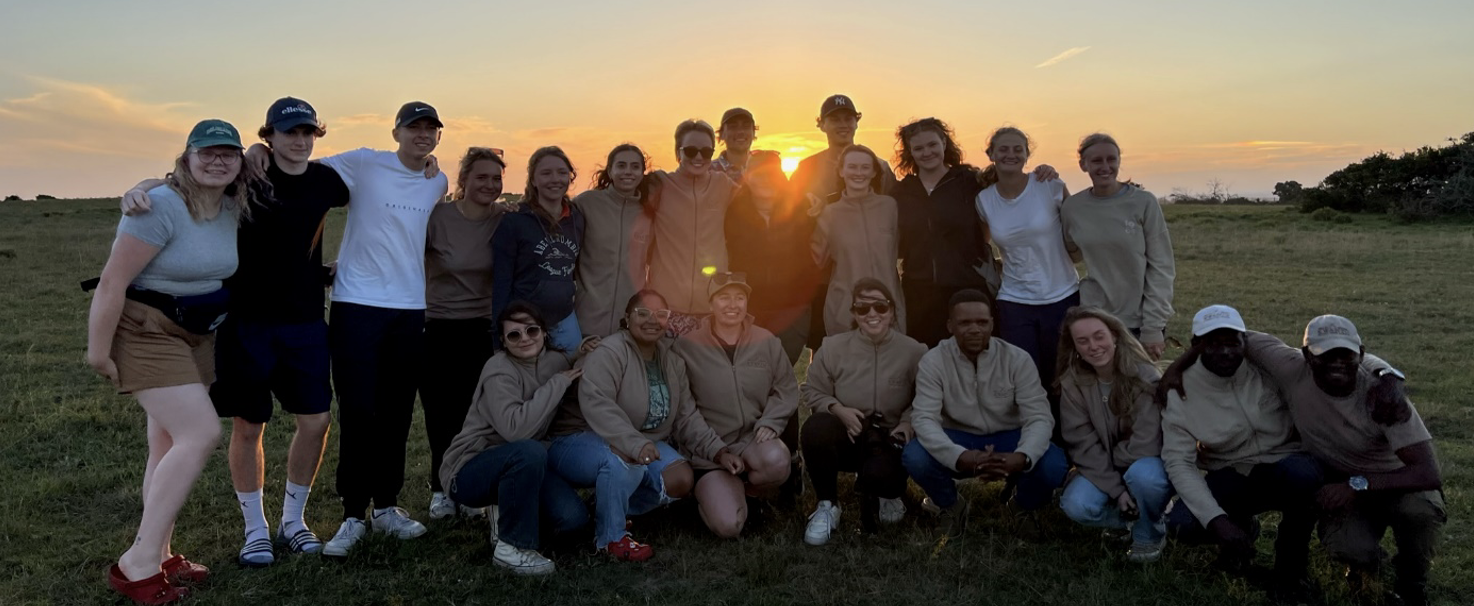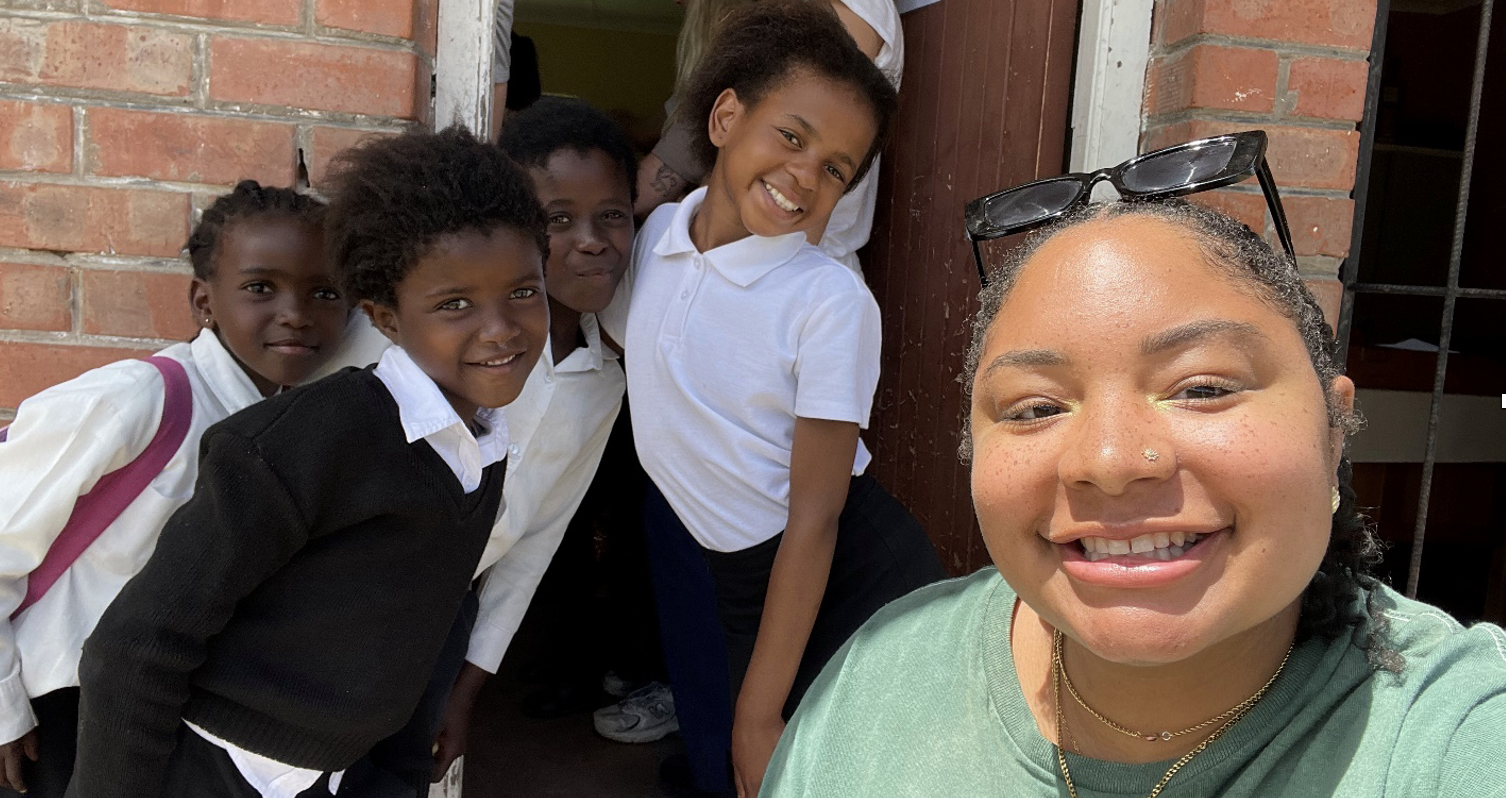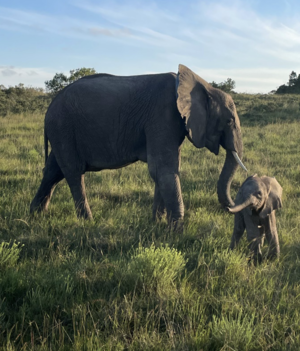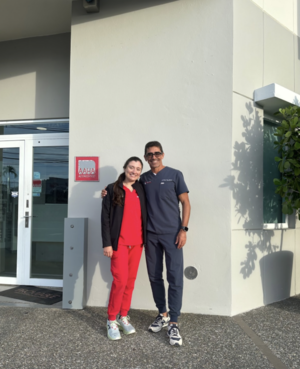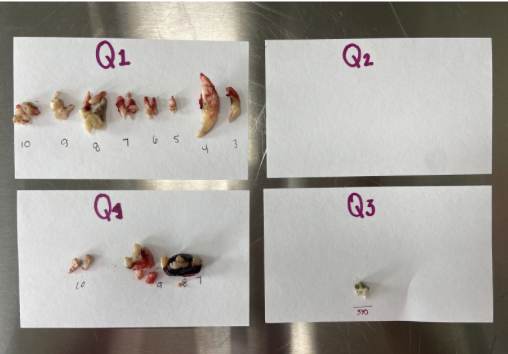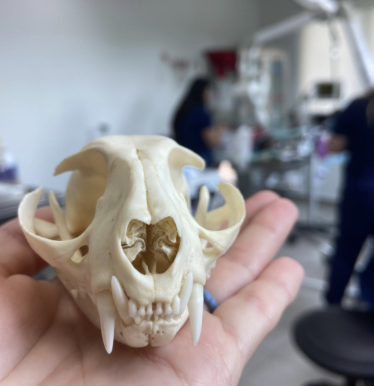SAVMA GRANTS AND SCHOLARSHIPS
 Wednesday, April 3, 2024 at 12:00PM
Wednesday, April 3, 2024 at 12:00PM Submitted by Brianna Brown, University of Pennsylvania
Retrospective Conference Travel Grant
 Through the support of Wildlife Futures Program and SAVMA retrospective travel grant, I attended the SYMCO Wildlife Conservation Conference in South Africa this past summer. The conference was run by the University of Pretoria’s veterinary school, and it was 18 days long. This trip was an incredible, eye-opening experience into the field of veterinary medicine. There were students from all over the world present at this conference and through discussions and our experiences, I got to engage in some invigorating debates about the future of wildlife medicine and the role veterinarians should play in conservation. One animal that made this experience one of my most meaningful veterinary experiences is the rhino. We worked with both black and white rhinos at both game reserves and orphanages/refuges, and I learned how incredibly resilient and beautiful these creatures are despite the horrible challenges they face. While working with these animals, I learned the current methods in place in South Africa to try and to protect the rhino from poaching. We learned about the dehorning process including the pros and cons of the procedure, and I learned how to microchip the horn of those rhinos that were dehorned. We also worked with organizations like Genesis K9 and Down2theWire who help to fight against poaching through unique ways. I also gained an important understanding of politics, and the role veterinarians should play in acting as the liaison between the animals and the people/country trying to protect them. I also gained important knowledge on how to run a refuge/orphanage through our work with elephants at Hoedspruit Elephant Development Center (HERD). There, I had some incredible interactions with elephants, and the knowledge I gained from this experience I hope to use in the future to either run my own refuge or help support an existing one through volunteerism and guidance.
Through the support of Wildlife Futures Program and SAVMA retrospective travel grant, I attended the SYMCO Wildlife Conservation Conference in South Africa this past summer. The conference was run by the University of Pretoria’s veterinary school, and it was 18 days long. This trip was an incredible, eye-opening experience into the field of veterinary medicine. There were students from all over the world present at this conference and through discussions and our experiences, I got to engage in some invigorating debates about the future of wildlife medicine and the role veterinarians should play in conservation. One animal that made this experience one of my most meaningful veterinary experiences is the rhino. We worked with both black and white rhinos at both game reserves and orphanages/refuges, and I learned how incredibly resilient and beautiful these creatures are despite the horrible challenges they face. While working with these animals, I learned the current methods in place in South Africa to try and to protect the rhino from poaching. We learned about the dehorning process including the pros and cons of the procedure, and I learned how to microchip the horn of those rhinos that were dehorned. We also worked with organizations like Genesis K9 and Down2theWire who help to fight against poaching through unique ways. I also gained an important understanding of politics, and the role veterinarians should play in acting as the liaison between the animals and the people/country trying to protect them. I also gained important knowledge on how to run a refuge/orphanage through our work with elephants at Hoedspruit Elephant Development Center (HERD). There, I had some incredible interactions with elephants, and the knowledge I gained from this experience I hope to use in the future to either run my own refuge or help support an existing one through volunteerism and guidance.
When we worked with painted dogs and lions, I learned the important role that population control can also have in conservation. On the game reserves that we visited, both the lions and the painted dogs had begun to inbreed and overhunt the land. So, we learned about reversible methods of birth control that can help control the population without preventing future fertility such as progesterone usage in lions.
From a medical standpoint, through my work with rhinos, I learned about various anesthesia protocols that can be applied to wildlife medicine in this country as well as. I also had the incredible opportunity to learn how to use a dart gun. I learned first about the mechanics behind the various dart guns available on the market as well as the types of darts. We then were allowed to practice darting on targets on the ground and then in the air while in a helicopter. This knowledge has already come in handy with my externship at the Oregon Department of Fish and Wildlife.

We also worked with some incredible veterinarians during the trip, and on one of the days, the veterinarians allowed us to do work ups on a herd of sable antelope. We watched as the veterinarian darted members of the herd, and then each student was allowed to go out with the veterinarian to draw blood and do a health exam.
Throughout the trip I also got to interact with vet students from all over the world and learn about their experiences and knowledge of the field. I was able to explore a gorgeous country going shark cage diving and on a safari in addition to our veterinary work. I will never forget this experience, and I am so grateful I was able to have this life changing opportunity that will help me to be a better wildlife veterinarian in the States.
 student experience in
student experience in  Experiences
Experiences 
